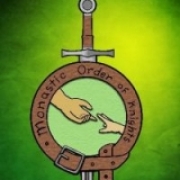- Posts: 8163
An Issue of Animal Conservation
This has been weighing on my mind. I feel very strongly about animal conservation and actively volunteer whenever I can - last May, I was in Thailand working at the Elephant Nature Park and I'm always looking for similar opportunities - and while I prefer to protest peacefully, this is such a bizarre situation because the hunt hasn't happened yet. There's just this nagging voice in my head telling me that if I really wanted to do something, I could. I don't want to just let this happen to an innocent - and more importantly, ENDANGERED - animal.
Please Log in to join the conversation.
Please Log in to join the conversation.
Adder wrote: oh to be rich.... out bid everyone else and then not go hunt it and let it live its natural life out instead.
That would definitely be the ideal.
Please Log in to join the conversation.
The money raised from these hunts (and it's a lot of money) goes to help buy preserves, land, fund research for these animals, as well as fund protection from poachers. In short the cost of one saves the lives of many.
While you may say why can't we just not kill them and everyone pitch in, the world doesn't run on hopes and dreams (although I wish it did.)
Please Log in to join the conversation.
- steamboat28
-

- Offline
- Banned
-

- Si vis pacem, para bellum.
A.Div
IP | Apprentice | Seminary | Degree
AMA | Vlog | Meditation
Please Log in to join the conversation.
Please Log in to join the conversation.
- Wescli Wardest
-

- Offline
- Knight
-

- Unity in all Things
- Posts: 6458
I belong to many charities and donate regularly; land conservation, national parks and wildlife, animal shelters… and never once have I gone out and killed something without good reason. (I guess it depends on what is considered “good reason”)
I am also a hunter, have farmed and worked ranches. Life and death are no mystery to me.
If there is a swell in population that risks the survival of the ecosystem or species then I have supported relocation and at times population management. But, no matter how much money I pay, for whatever the reason, I do not have the right to go out and kill anything arbitrarily.
William Blackstone (citing Edward Coke), in his Commentaries on the Laws of England set out the common law definition of murder, by this definition…
“when a person, of sound memory and discretion, unlawfully kills any reasonable creature in being and under the king's peace, with malice aforethought, either express or implied”
An endangered species would be “under the king’s peace” by my interpretation. If we can justify the sanctity of even one life with a monetary cost and associate that cost with some higher benefit, at what point will that line of thought cross to other species?
The ends do not justify the means by my beliefs.
Please Log in to join the conversation.
Please Log in to join the conversation.
Though a few things come out at me:
Unless you somehow think you can convince the rest of the world to stop hunting entirely you can assume that:
1. Hunting will continue.
2. Poaching will continue.
3. There will be a demand to hunt and/or poach [strike]endangered[/strike] (think of it as) rare animals.
I am not a hunter but am I right in thinking that those 'professional hunters' would consider rarity over animal conservation (endangerment)? And that any classification of 'endangerment' will in fact make it more valuable a hunt because of its added rarity?
So. As I said, assuming that we cannot convince the world to stop hunting then what is a good way to go about doing hunting properly? You must remember that your desire for there to be no hunting is just as strong as the hunter's desire to hunt. Who is 'right'? You tell me...
Vesha wrote: The money raised from these hunts (and it's a lot of money) goes to help buy preserves, land, fund research for these animals, as well as fund protection from poachers. In short the cost of one saves the lives of many.
steamboat28 wrote: Whether or not the trust wishes to accept the money given its origins, the fact that the organizer chose a male "beyond the age of breeding" suggests that this even is at least partially well-intentioned, regardless of the ultimate outcome. If that $350,000 can aid in the further survival of the species (in an instance where a non-breeding male, logically, cannot), then it becomes a little less cut-and-dry, in my opinion.
Assuming that the money does go to a 'stop the poaching' organisation (whichever one it was) and assuming that the animal could not help its species through breeding anymore then I think that a pretty pragmatic conclusion to come to would be to allow hunting of specific animals.
What is the alternative?
Poaching continues because the organisation doesn't get enough money from donation to stop it. That poaching kills a 'useful' (=breeding capable) animal and the species suffers.
Or you let one 'non-useful' animal die and prevent the poaching thus allowing the species to continue?
Please Log in to join the conversation.
From an economic point of view, you can site supply and demand as a motivation for the hunter. The more rare the animal is, the more prized it becomes as a trophy. It is part of capitalism. If you have something rare that I want, you get to set the price. If I have the money, I'm going to pay for it. How you use that money is then up to you. Until the perceived value of the animal goes down, there will always be someone in the market to buy its life. You don't see people paying $350,000 to hunt cows.
From an ecological point of view, you can make the argument that it all comes down to balance. When you remove man from the equation, nature has shown herself to be very efficient at maintaining balance in any system. When one species becomes overpopulated, a natural predator or disease will eventually rise to the occasion. When a species has outlived its usefulness, it will evolve or go extinct. When an individual animal outlives its ability to procreate or defend itself, it will be culled from the herd. It is only when man pretends to know better and intervenes that we see the unnatural and often catastrophic results. This is true for both hunters and conservationists. Whenever we think we know better, we're often doing more harm than good.
From a scientific point of view, it all comes back to our buddy Darwin. Survival of the fittest. If the rhino was supposed to survive as a species, it would. Man has evolved to the point that we can create and use firearms. If we hadn't, we wouldn't be willing to tangle with a rhino head on because we would likely lose. At some point we may see bulletproof rhinos wandering the plains, and then we'll look at this situation a little differently. If they do not evolve to a higher place on the food chain, they will continue to lose the battle.
Clearly none of these arguments are without huge flaws, and often they are in complete contradiction with each other. It all comes down to the opinion of the individual, and as we all know, opinions are often born of emotion. Maybe if rhinos were more cute and cuddly, more people would want to save them and the "manly" men wouldn't feel the need to kill them. Who knows?
Please Log in to join the conversation.
